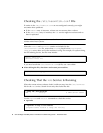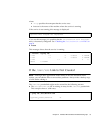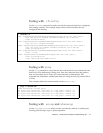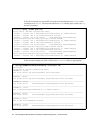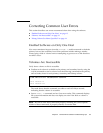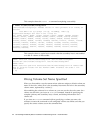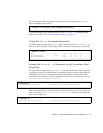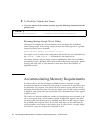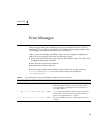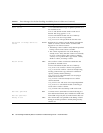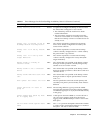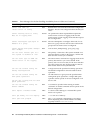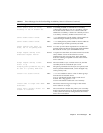
16 Sun StorEdge Availability Suite 3.2 Software Troubleshooting Guide • December 2003
▼ To Find the Volume Set Name
1. If you are unsure of the volume set name, type the following command from the
primary host:
Running Startup Script Out of Order
The scripts to configure the network interface must run before the Availability
Suite’s startup script. If the startup script runs first, the following error is reported
when the primary host is restarted:
Error: Neither <phost> nor <shost> is local
The scripts are out of order if the configuration file includes the set information but
the sndradm -i and sndradm -P commands do not report the set.
The startup process runs the startup scripts in alphabetical order. The Availability
Suite startup script is SOOtrdc. Move the network configuration procedures, plumb,
ifconfig, and route_add, to a file that has a name that comes after SOOtrdc in
alphabetical order.
Accommodating Memory Requirements
In releases prior to the Sun StorEdge Availability Suite 3.2 software, a single
asynchronous thread was created for each group of volume sets on the primary host.
Asynchronous I/O requests were placed on an in-memory queue and serviced by
this single thread. Because there was only one thread, only one RPC request could be
in-flight for each group and each request had to be completed before a new request
could be issued.
The version 3.2 software enables the number of asynchronous service threads to be
set on a per group basis, which enables multiple in-flight RPC requests and faster
servicing of the asynchronous queue. Enabling more than one RPC request creates
the possibility that requests arrive out of order with respect to the order that the
write operations were issued on the primary host. In other words, a request might
arrive before a previous request has completed its I/O.
# sndradm -p
/dev/vx/rdsk/rootdg/tony1 -> calamari:/dev/vx/rdsk/rootdg/tony1



